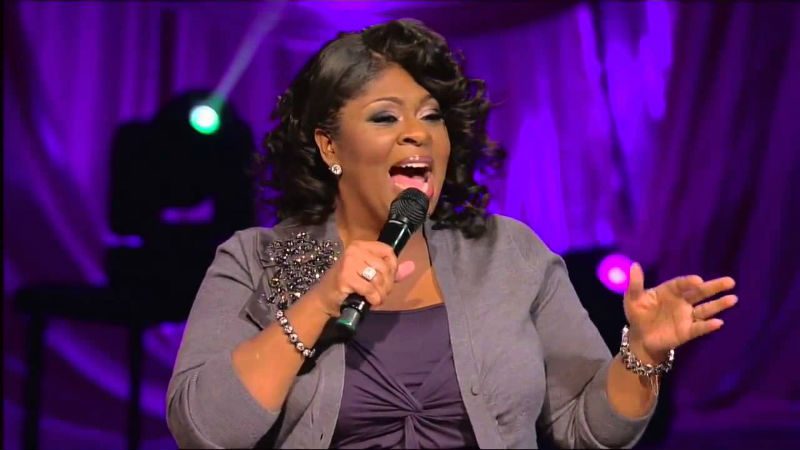Gospel music has a queerness at its roots that has shaped the genre and continued to give gospel music its enduring vibrancy
One of black gospel’s darling and Pentecostal preacher Kim Burrell was ousted from The Ellen DeGeneres Show, sending shock waves throughout the African American community.
Burrell along with Pharrell Williams were invited to promote their duet “I See Victory” from the soundtrack of the film Hidden Figures.
However, Burrell’s homophobic homily about the “perverted homosexual spirit” has created a tsunami of tweets and comments on social media publicly denouncing her vitriol by a younger generation of African Americans entertainers—both LGBTQ and straight—not seen in previous years.
Rhythm & Soul Music awardee Janelle Monáe stars in the film and R&B and Hip-Hop songwriter Frank Ocean, who both are openly queer, have had visceral reactions to Burrell’s rant. Ocean’s mother wants Burrell removed from her son’s 2016 album Blonde and Monáe took her comments to Instagram.
"I unequivocally repudiate ANY AND ALL hateful comments against the LGBTQ community… We cannot sit Idly by nor will we speak silently when we are confronted with such violence against members of our community.”
What has always made me shake my head in utter disgust is not only how most African American gospel church choirs of any note have LGBTQ singers but how they also actively seek us out as ministers of music.
“The virtuosity of gay singers, musicians and composers has been the driving force in developing popular gospel choirs—even chart-topping, Grammy-winning acts—that make money for a church, help expand congregations and raise the profiles of pastors,” NPR reported in its 2012 segment titled “Blacks, Gays and The Church: A Complex Relationship.”
Gospel music undeniably has a queerness at its roots that has not only shaped the genre but it has continued to give gospel music its enduring vibrancy.
One of the black church denominations largest influence in the musical genre is the Church of God in Christ (COGIC) that Burrell belong to. COGIC is the largest African American and largest Pentecostal church in the United States. And as the largest denominational black church in the country it is also the loudest in rebuking homosexuality.
With many of the gospel music industry mega-stars- from COGIC, the church's charismatic worship style shouts to a black gay male queer gospel aesthetic every Sunday. And the church is conflicted with itself.
For example, Pastor Donnie McClurkin, an uber-star in the stratosphere of black gospel music, also belongs to COGIC and struggles mightily with his sexual orientation.
“God did not call you to such perversions. Your only hope is Jesus Christ. Were it not for this Jesus I would be a homosexual today. This God is a deliverer,” McClurkin exhorted with fire and brimstone at the Church of God in Christ’s (COGIC) 102nd Holy Convocation International Youth Department Worship Service in November 2009.
In 2010, McClurkin was dis-invited from Boston’s annual Gospelfest, a public and taxpayer-funded community event, that’s open to all—even the African American LGBTQ communities. But this wasn’t the first time, McClurkin, the poster boy for African American “ex-gay” ministries had to confront his closeted past and homophobic presence.
In Burrell’s unapologetic rejoinder defending her sermon about the LGBTQ community stated, “I love you and God loves you but God hates the sin in you and me.”
Burrell’s theological qualifier of “love the sinner but hate the sin” is commonly heard in our churches. This message is deleterious to the LGBTQ worshipping community on some many levels:
It pimps our talent yet damn our souls.
Our connections and contributions to the larger black religious cosmos are desecrated every time homophobic pronouncements, like Burrell’s, go unchecked in these holy places of worship.
The Black Church becomes an institution on the “down low.”
Our silence, shame, and stigma around issues of identity, sexual practices, and the lack of pastoral care to people deemed “outsiders” are factor contributing not only to high-risk sexual behaviors and the transmission of HIV/AIDS, but also to the silent killer of suicide and homelessness in my community.
Gay males, in particular, continue to find ways of being supported in the COGIC.
For example, “blaquebigayministers” is a Yahoo gay ministers group, boasting 787 members since July 2000 and was founded by COGIC Elder Ronald Kimbrew.
The “blaquebigayministers” website states the following:
“WELCOME. This fellowship is for support and encouragement especially of black Christian ministers and friends who are "family" (bi or same-gender loving) and need a place of refuge. Enjoy the "fellowship."
A reported following the 2009 Convocation asked “Is COGIC going to be silent while an organized culture of homosexual ministers and bishops populate its pulpits?
My answer is yes.
COGIC cannot deny that the church get its Jesus dance on and Amen shouts to a black gay male queer gospel aesthetic every Sunday and no one knows it better than Burrell herself.
COGIC was formed in 1897 by a group of disfellowshipped Baptists. I wonder if the guys were disfellowshipped because they were gay.
If so, their music lives on, nonetheless.
Sources:
Gospel singer Kim Burrell calls homosexuality 'perverted,' Pharrell Williams and stars from 'Hidden Figures' condemn 'hateful comments' – LA Times
Frank Ocean's Mother Wants Gay-Bashing Kim Burrell Off Her Son's Album
Janelle Monáe on Instagram: “I shouldn't even have to post this
Blacks, Gays And The Church: A Complex Relationship : NPR
Donnie McClurkin vs Tonéx: Round ONE | The Black Youth Project
Ex-Gay' Donnie McClurkin At Boston's Gospelfest | The Huffington Post
Ellen DeGeneres, Pharrell address Kim Burrell homophobic remarks
